Manipulate my Calendar data via CRUD RESTful using Calendar CalDAV? Endpoint
What?
Calendar CRUD (
Create,
Read,
Update,
Delete) Endpoint Service.
Why?
Using CRUD RESTful Endpoint service provides an easy way to manage calendar tasks/events.
How?
Knowing an Calendar CRUD Endpoint Service endpoint URL, one can perform the following activities:
- Copy-paste vCard files containing calendar tasks/events.
So once pasted, the system creates the calendar tasks/events;
- Edit task(s)/event(s);
- Update task(s)/event(s);
- Delete task(s)/event(s);
- Update RDF Data for the Calendar instance.
Depending on the instance's model:
Example with Calendar instance that has Member model from type "Closed" and is not set "Visible to public"
- Suppose a user, for ex.
"demo", has created Calendar instance with name "demoCalendar" and
Member model is "Closed":
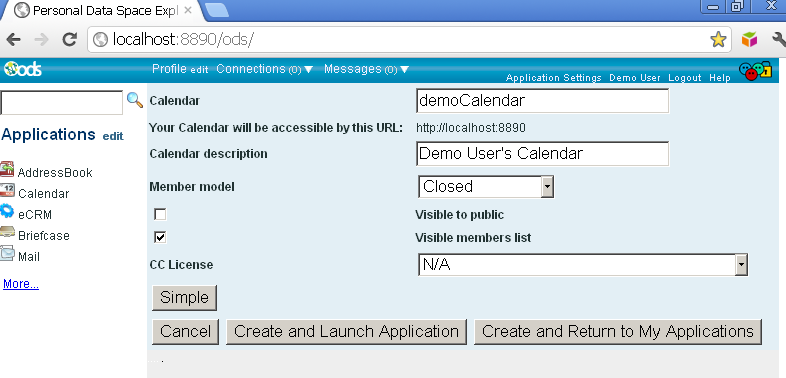
- Mount the Calendar CalDAV? Endpoint URL
http://localhost:8890/DAV/home/demo/calendars/demoCalendar/>
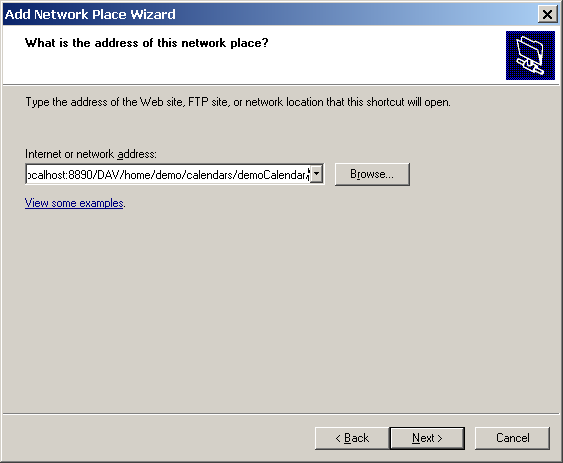
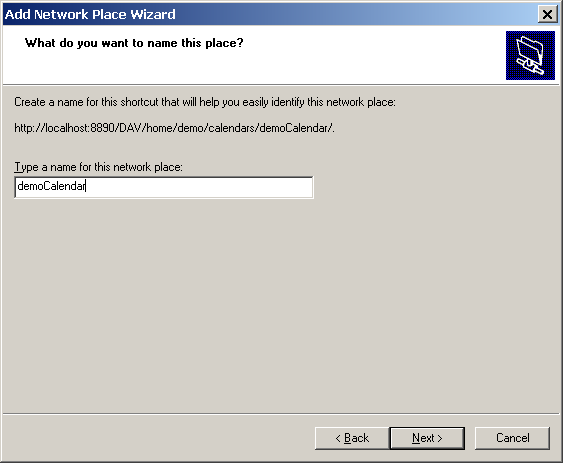
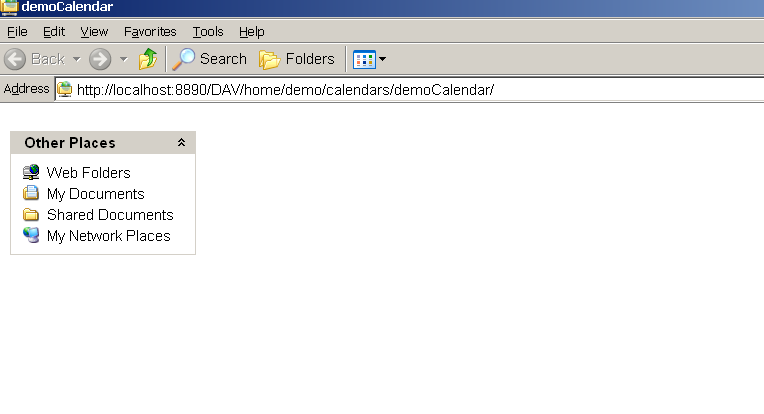
- Drop a .vcf file, for ex.
demo-calendar.ics into the mapped CalDAV? Calendar folder:
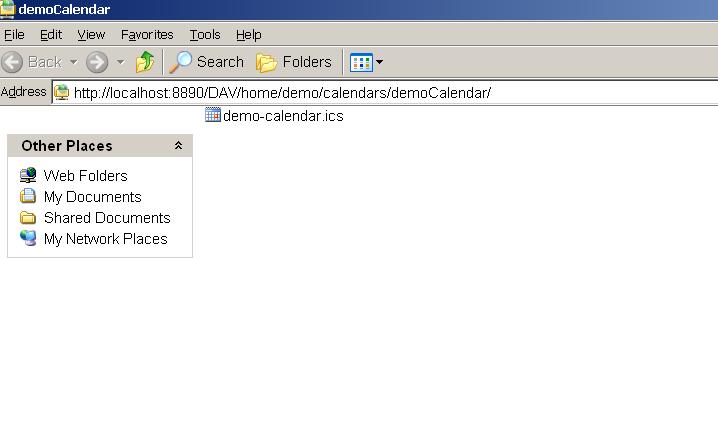
- The user demo's Calendar Dataspace instance UI now should show under "Tasks"/"Events" the new imported task(s)/event(s):
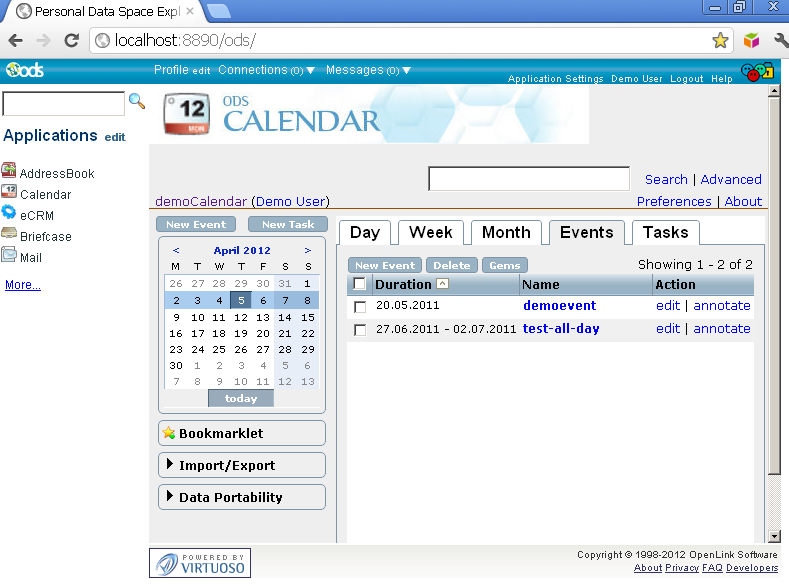
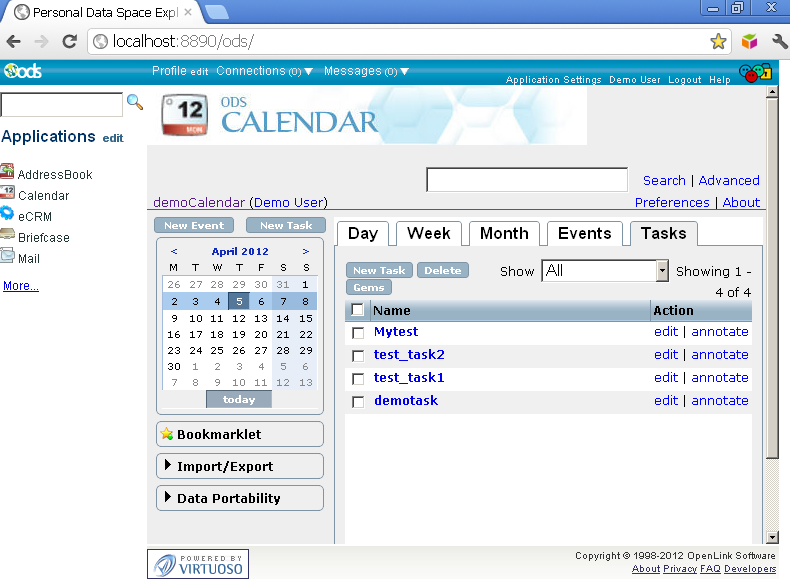
- Generate an X.509 Certificate hosted WebID for user "demo" WebID?.
- Secure your SPARQL Endpoint via user "demo" WebID, for ex.:
-- user "demo" WebID:
http://localhost:8890/dataspace/person/demo#this
-- SPARQL-WebID Endpoint:
-- https://localhost:4433/sparql-webid
- Access the SPARQL-WebID? Endpoint.
- When challenged for authentication select the generated from above certificate for user "demo":
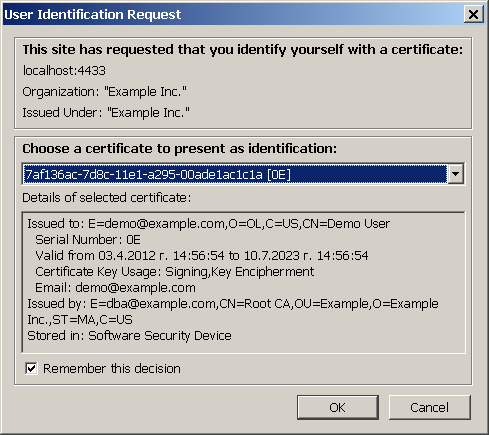
- The SPARQL-WebID? Endpoint UI should be presented:
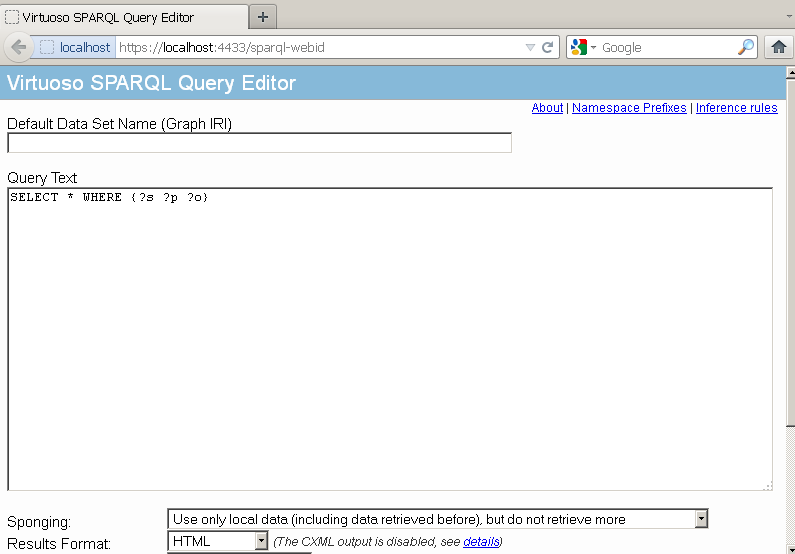
- Enter the following query:
SELECT *
FROM <http://localhost:8890/dataspace/protected/demoCalendar>
WHERE {?s ?p ?o}
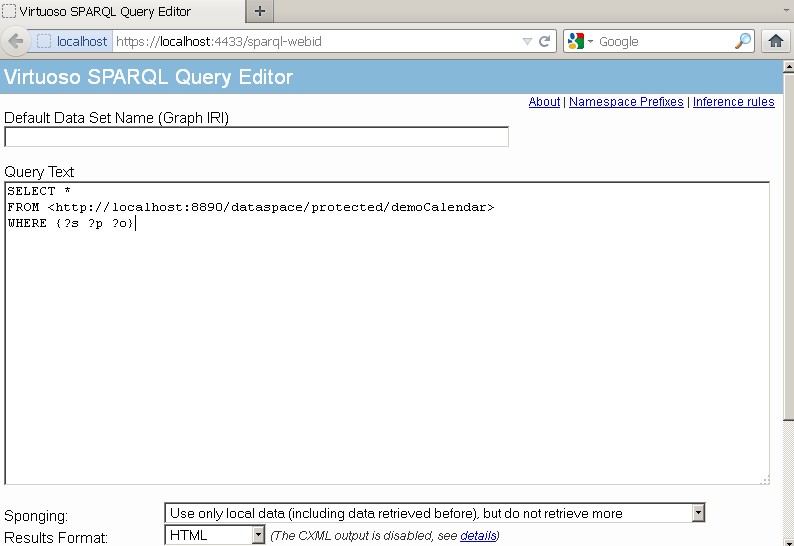
- As result no rows are found.
Example with Calendar instance that has Member model from type "Opened" and is set "Visible to Public"
- Suppose a user, for ex.
"demo", has created Calendar instance with name "demoCalendar" and
Member model is "Opened" and is set "Visible to Public".
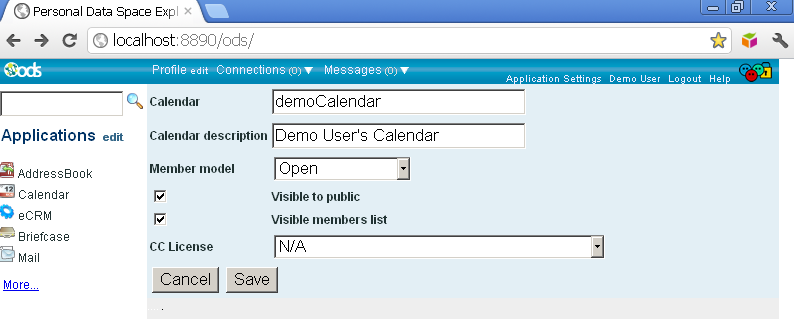
- Mount the Calendar CalDAV? Endpoint URL
http://localhost:8890/DAV/home/demo/calendars/demoCalendar/>



- Drop a .ics file, for ex.
* demo-calendar.ics into the mapped CalDAV? Calendar folder:

- The user demo's Calendar Dataspace instance UI now should show under "Tasks"/"Events" the new imported task(s)/event(s):

- Access the SPARQL Public Endpoint.
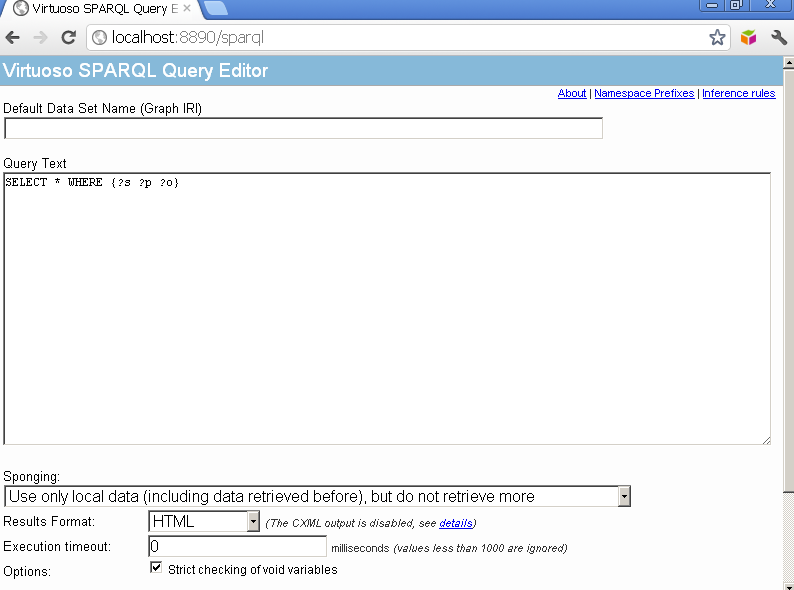
- Suppose there is inserted from above task with id= 1032
- Enter the following query:
SELECT *
FROM <http://localhost:8890/dataspace>
WHERE
{
<http://localhost:8890/dataspace/demo/calendar/demoCalendar/Task/1032#this> ?p ?o
}
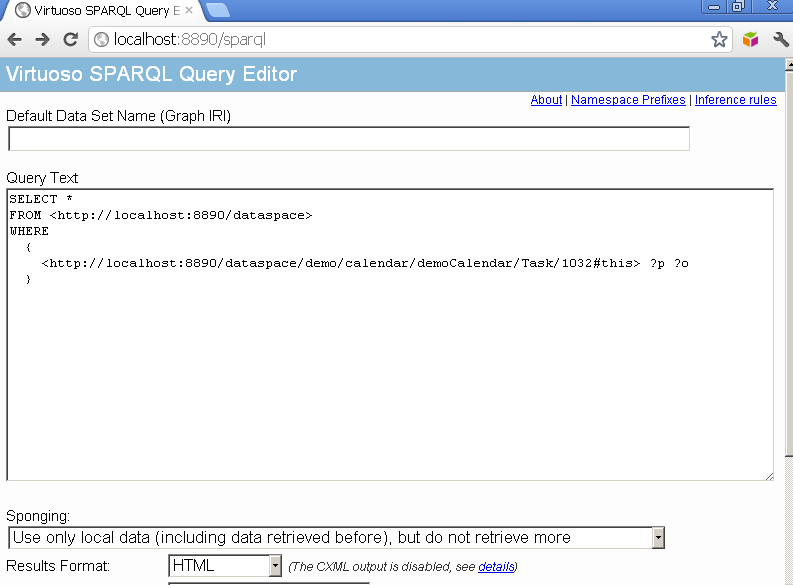
- Click "Run Query".
- As result the freshly inserted RDF Data for the task in question will be displayed:
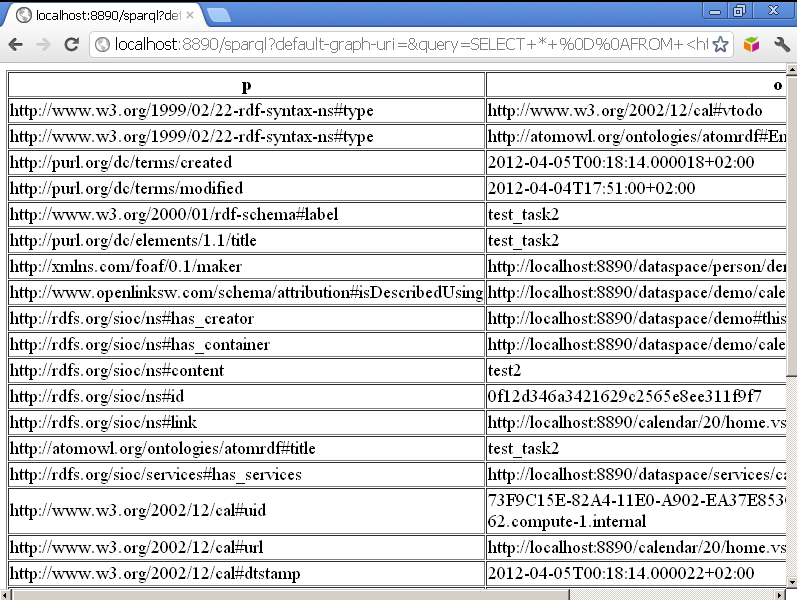
Related


















